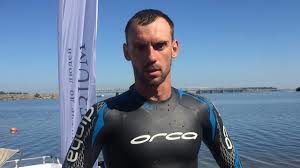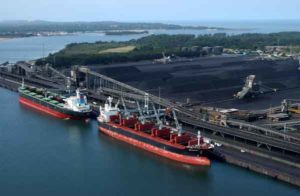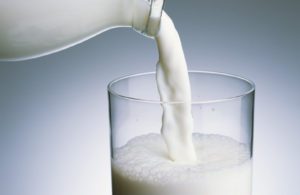
Primary registrations of new passenger cars in Ukraine in January-August 2019 grew by 2% year-over-year, to 54,600, the Ukrautoprom association has reported.
Sales growth in August of this year by 12.5% compared to August of 2018, to 8,300 cars, contributed to the positive pace over the January-August period.
“This is the best result for the domestic market over the past 19 months,” the association said.
The leader of August – Renault – improved the result of the same month by 44% to 1,422 cars, Toyota ranked second, registrations of which grew by 20% to 1,175 cars, and the KIA brand moved up to the third position with sales growth of 71%, up to 817 cars.
Skoda was fourth with 601 cars sold (a rise of 49%), and Nissan maintained fifth position despite a 5% drop in sales (to 472 cars).
Ukrautoprom said that over the past summer season in Ukraine, 22,400 new passenger cars were registered.
Meanwhile, the AUTO-Consulting information and analytical group, analyzing car sales last month, said that sales growth amounted to 6.3%, to 8,200 cars, even compared to the successful July of 2019, and compared to August 2018, they grew by 19.8%.
The top three of the month at AUTO-Consulting coincides with Ukrautoprom’s, and the group’s sensation of the month is Peugeot’s breakthrough in eighth place (11th in July), with a 25.4% increase in sales, to 247 vehicles compared with July 2019.

Ukraine’s Verkhovna Rada has passed at first reading the law on concession foreseeing the amendments to some legislative acts aimed at improving legal regulation of concession activities.
An Interfax-Ukraine correspondent reported that bill No. 1046 was supported at first reading at the plenary meeting of the Rada by 293 MPs on Friday. Some 254 MPs backed shortening the terms of preparation of the bill for second reading.
According to the authors of the document, the bill should contribute to improving the legal regulation of concession activities, which, in turn, will provide the opportunity of effectively attracting domestic and foreign investment in the Ukrainian economy for infrastructure development. The document also defines a clear mechanism for selecting a concessionaire and introduces concession conditions in line with international practice.
According to the text of the bill, the term “concession” defines a form of public private partnership (PPP), which implies granting by a concessor the rights to create and/or build (repair/ re-equip, and other actions), and/or manage the concession facility to a concessionaire, and/or to provide services on the terms determined under a concession agreement, and foresees the transfer of most of the operational risk to the concessionaire.
The bill, in particular, defines: a clear separation of regulating concession and other forms of PPP implementation; a unified procedure for initiating and making decisions on the implementation of PPPs for all forms of PPPs (including concessions); introduction of a transparent procedure for selecting a concessionaire (a concession tender, a competitive dialogue), consistent with international practices, as well as the possibility of attracting advisers and independent experts to prepare PPP projects in the form of concession.
The document also provides additional guarantees for concessionaires and creditors, in particular, the determination of the right to replace the concessionaire with another concessionaire in the concession agreement.
In addition, the bill simplifies land allocation procedures for PPP projects in the form of concessions; defines the features of the concession in markets that are in a state of natural monopoly, as well as the features of the concession for the construction and operation of roads.
At the same time, the new version of the bill introduces a clear regulation of the ownership of the facility under concession, the purpose of which is to preserve the state/territorial community’s ownership of the concession facility.
In addition, the document provides potential concessionaires with the opportunity of initiating a concession.
The bill also stipulates that concession facilities cannot be forests, but aerodromes can be, and concession charges for roads will serve as a source of filling the Road Fund.
At the same time, according to the conclusion of the parliamentary committee on Ukraine’s integration with the EU, the bill does not comply with the Ukraine-EU Association Agreement and needs to be revised taking into account the relevant remarks.

Interfax-Ukraine to host press conference ‘Successful Completion of 1st Phase of #DniproSwimming Project: Athlete Swims 1,000 km along Dnipro from Belarus Border to Kherson’
On Monday, September 16, at 12.00, the Interfax-Ukraine news agency’s press center will host a press conference titled: “Successful Completion of 1st Phase of #DniproSwimming (#VplavDnepr and #VplavDnipro) Project: Athlete Swims 1,000 km along Dnipro from Belarus Border to Kherson. Awards from the Book of Records of Ukraine. Further Plans.” Participants include: record-breaking swimmer Mykhailo Romanyshyn; expert of the National Register of Records of Ukraine Vitaliy Zorin; participant in the project (accompanying boat) Andriy Yaremov; organizer of the #DniproSwimming project Maksim Urakin (8/5a Reitarska Street).
More details by phone: +38 067 232 0042.

The deficit of Ukraine’s foreign trade in goods in January-July 2019 increased by 18.5% compared with January-July 2018, to $4.936 billion, the State Statistics Service has reported.
According to its data, export of goods from Ukraine for the specified period grew by 7%, to $28.748 billion, while imports by 8.5%, to $33.684 billion.
The service said that in July 2019 the seasonally adjusted export volume decreased by 3.7% compared to May 2019, to $4.081 billion, while imports by 0.2%, to $5.248 billion.
The seasonally adjusted foreign trade balance in July was also negative and amounted to $0.956 billion, which is 12.8% less than in the previous month ($1.096 billion).
The service said that foreign trade operations were carried out with partners from 218 countries of the world.
The ratio of coverage of imports by exports amounted to 0.85 (in January-July 2018 0.87).

DTEK Energy has bought 88,000 tonnes of G group coal from Columbia.
According to the company’s press release, the unloading of the W-Ace bulk carrier has already begun at the TIS terminal (Odesa region), after which coal will go to DTEK Energy’s thermal power plants (TPPs).
“Today in the Ukrainian energy sector there is a situation where thermal power plants must replace the amount of electricity that other types of generation must generate,” the company said.
According to DTEK Energy CEO Dmytro Sakharuk, today, the company has already contracted 388,000 tonnes of coal from abroad.
Earlier, DTEK CEO Maksym Tymchenko said that by the end of the year, the company’s demand for imported coal is about 1 million tonnes, taking into account already contracted volumes.
As reported, by the beginning of September 2019, coal reserves in the warehouses of TPPs of Ukraine are 54.6% lower than last year.

Milkiland, a dairy group with assets in Ukraine, Russia and Poland, saw net loss of EUR 7.28 million in January-June 2019, which is 2.9 times more than a year ago.
According to a report of the group on the Warsaw Stock Exchange (WSE), consolidated revenue in January-June 2019 slightly fell to EUR 65.88 million, and earnings before interest, taxes, depreciation and amortization (EBITDA) fell by 85.3%, to EUR 0.53 million.
“This stable result was triggered by significantly higher top-line in Ukraine (+c.36% year-over-year) compensated by lower sales in Russia and Poland (c. 8.5% and c. 45% on year-over-year basis, respectively). Positive dynamics of the group’s sales in Ukraine in H1 2019 relied on the higher sales of butter, stable sales of whole-milk products partly offset by the declined sales of cheese,” the company said in the document.
Lower top-line in Russia was fully triggered by the decline of whole-milk products sales, while in Poland the group faced the drop of cheese and dry milk products sales both in volume and value terms due to shorten operations in this country.
As the result of the lower cheese sales in Ukraine and Poland the group’s overall sales in Cheese&Butter segment in the reporting period declined by 19% to EUR 19.7 million on year-over-year basis, the share of this segment revenues in the total revenues of the group slid from 37% in H1 2018 to 30% in H1 2019.
Whole-milk product segment still being the largest contributor to the Group’s revenues in H1 2019 (with the share of 48% vs 50% of the total revenues in H1 2018) demonstrated a 4% correction in value terms, caused mostly by the decline of the sales volumes in Russia by c. 10% in comparison with the same period of 2018.
The group said that better pricing at the global market of dry milk products contributed to noticeable growth of the revenues of Ingredients segment, which increased by c. 62% in the first half of 2019 in comparison with the same period of the last year on the back of almost two-fold increase of the sales volumes of these products. The share of the respective revenues of the segment in the total revenues of the group, consequently advanced from 14% in H1 2018 to 22% in the reporting period.
Operating loss over the period fell by 80.8%, to EUR 9.11 million. Gross profit decreased 24.2%, to EUR 8.57 million.
“Total liabilities increased by c.15% as of 30 June 2019 in comparison with 30 June 2018 mainly resulting from a c.21% growth in current liabilities in turn triggered by the noticeable increase of trade and other payables from c. EUR 49 million as of June 30, 2018 to c. EUR 80.4 million on the same date of the current year,” the company said.